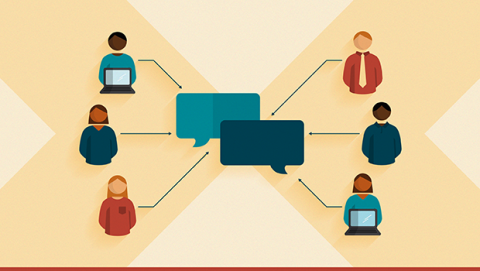Last year, Grady Health System earned the prestigious HIMSS Analytics Stage 7 designation – the highest rating for improved patient care through technology and data. CIO Ben McKeeby credits his team’s steadfast focus on partnership and collaboration with teams throughout the healthcare organization as key to their success.
[ See our related article, Anthem CIO: How agile helped us drive value. ]
We spoke with McKeeby, who recently took home the Healthcare CIO of the Year award from the Georgia CIO Leadership Association, about a unique program designed to take IT partnerships to the next level, as well as the soft skills that he says make a big difference on his team.
The Enterprisers Project (TEP): How do you encourage a partnership mentality with everyone in IT?
McKeeby: If you’re going to move the needle, you have to be working with your business partners. Because it’s so crucial to our success, I reinforce this with my team in a number of ways. In my one-on-ones with my leaders and staff, I’m constantly talking to them about who they’re establishing and maintaining relationships with in order to do their job better and deliver results.
I also encourage my folks to pick up the phone rather than to email all the time. Get out of your chair, get out of your office, and actually go to where the work is being performed. This helps to nurture those one-on-one partnerships and has the added benefit of connecting IT to the purpose, as well. They can see exactly how we are impacting patient care and operations through the work we’re doing.
To take that a step further, we have started to roll out what we call our “a day in the life” program. Everyone in IT, from leaders down to staff are encouraged to spend two to eight hours with our customer, either performing their job or watching them perform their job. We have the opportunity to walk in their shoes and think about problems from their perspective. It really enables outside-the-box thinking and takes our partnership and customer service to the next level.
TEP: How has this focus on partnerships set your organization up for success?
McKeeby: Technology is always changing – that’s the one constant. Because of that, the way we conduct business changes, as well. Disruption is happening all over the place. And so a cookie-cutter approach isn’t going to work. You have to be able to assess the situation and formulate an appropriate plan based on the particular challenges at hand. In some cases, you’ll have to completely change how you are approaching things. If you are rigid in your views, you are going to get stuck, and it’ll be harder for you to achieve any amount of success.
Being adaptable has helped me work with others and, ultimately, get results. Whether I’m dealing with my team in IT or dealing with our operational partners, adjusting to the situation and figuring out a solution for that particular problem is key. Again, this goes back to building trust and partnerships. Adaptability is a trait I encourage from everyone in IT. People throughout the organization know that if they come to me or my team, we’re going to listen with an open mind. We’re not going to force our view or preconceived notions about their challenges on them. We’re going to listen to the problem and come up with creative ways to solve it.
TEP: Adaptability and creative problem solving are often described as “soft skills” in IT. Are there other soft skills you prioritize on your team?
McKeeby: Absolutely. Emotional intelligence is huge, especially for leaders on my team. Communication is up there along with an intrinsic drive for quality and excellence in everything you do. I look for teamwork and collaboration skills, and there’s no substitution for passion – people who are excited about seeing the value in the work they’re doing.
EQ has received a lot more attention as of late in publications and research and really does make a difference. We’ve incorporated emotional intelligence into our organizational-wide leadership development workshops, and we’ve found that it really can make so many aspects of the work in IT easier – or harder if EQ is lacking.
[ See our related story, Emotional intelligence test: 5 self-evaluation tools. ]
TEP: What is the one way that someone early in their IT career can stand out to management?
McKeeby: Deliver high-quality work in whatever capacity you can. Be proactive and be resilient, especially early on. Not everything is going to go your way throughout your career. But having that resilience is going to help you to bounce back and maintain your passion throughout your career’s ups and downs.
Want more wisdom like this, IT leaders? Sign up for our weekly email newsletter.






